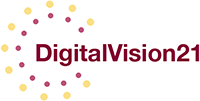“Banking is a very good business if you don’t do anything dumb” according to Warren Buffett. And banking is built on trust, which can be very fragile. Trust is built on three fundamental elements: competency, consistency, and sincerity. And these elements in turn are based on factors including open communication, maintaining ample liquidity and capital, creating a superior customer experience, and having informed employees who can confidently address customer concerns.
As financial confidence declines amid rising inflation, Americans are seeking to grow financial literacy and leverage digital banking tools. Credit Karma has launched a Net Worth feature within its app to help users make more informed financial decisions by providing a comprehensive overview of their finances. Users can link financial accounts, assets, and liabilities, and receive insights on spending data and the projected time to reach retirement goals. The tool, which is currently rolling out to US consumers with a credit score of 720 or above, aims to provide a clearer vision of different opportunities for users to grow their money. Credit Karma plans to leverage consumers’ financial data to serve more targeted content, insights, and products over time.
Small retail investors are pouring more money into stock trading, with interest now more spread out across big names like Tesla rather than just small, out-of-favor companies. Wealthfront is capitalizing on this trend by moving beyond robo-advisory to launch a Stock Investing Account, allowing users to buy individual stocks and access curated stock collections on the app. The company aims to help investors build alignment in their portfolios by providing industry commentary, potential negative impacts on portfolios, and personalized suggestions on how much of a client’s portfolio should be dedicated to stock investing. Wealthfront focuses on long-term investing rather than gamified stock trading experiences, with intentional limits on real-time price updates and trading frequency.
The pandemic accelerated changes in consumer behavior, with digital wallets becoming more popular than credit cards. A survey by Accenture found that over half of the respondents used digital wallets frequently, compared to 48% for credit cards. Consumers seek greater control over their finances, which is expected to drive the demand for next-gen payment options and super-apps. Banks remain the most trusted providers for secure transactions, but that trust won’t guarantee success. Incumbents must address customers’ pain points, including slow payment experiences and declined transactions. To remain competitive, payment providers should consider strategies like partnering to achieve scale, leveraging technology, developing a niche focus, and expanding beyond payments into online marketplaces and super-apps.
Inflation has become a persistent issue, causing consumers to seek financial support from their banks. However, a Personetics survey in 2022 found that 63% of banking customers received no communication from their banks about dealing with the inflation crisis. Banks that proactively offer support, such as financial health checks, can help customers manage their finances. Bank of America, for example, focuses on providing personalized solutions and educational resources tailored to different demographics. The bank’s partnership with Operation HOPE has seen clients improve their FICO scores, increase savings, and reduce debt. Bank of America also offers digital tools like Life Plan and Erica to help clients manage their financial lives.
What is the future of banking? There’s no crystal ball to answer that question, but banks must be aware of the technological changes impacting their business and create multiple business plans to address these shifts. Upcoming technological changes that could impact banking include generative AI, crypto and Central Bank Digital Currencies, open data, quantum computing, and data trusts. Navigating the future requires constant monitoring, adaptation, and investment, making it more complex than ever for companies to predict their roles in the next decade.
Headlines about a potential ‘banking crisis’ may (hopefully!) fade away fairly quickly. But the events of the past couple of weeks do point to a need to have a playbook ready to address potential customer concerns. Three of those strategies should include:
- Pay close attention to social media, and be prepared to address customer concerns and questions promptly.
- Take a conversational approach in all communications, and share lots of information. This might include Q&A’s, newsletters, videos, and webinars.
- Consider extending service hours to help address customer concerns – or welcome customers from other institutions.
